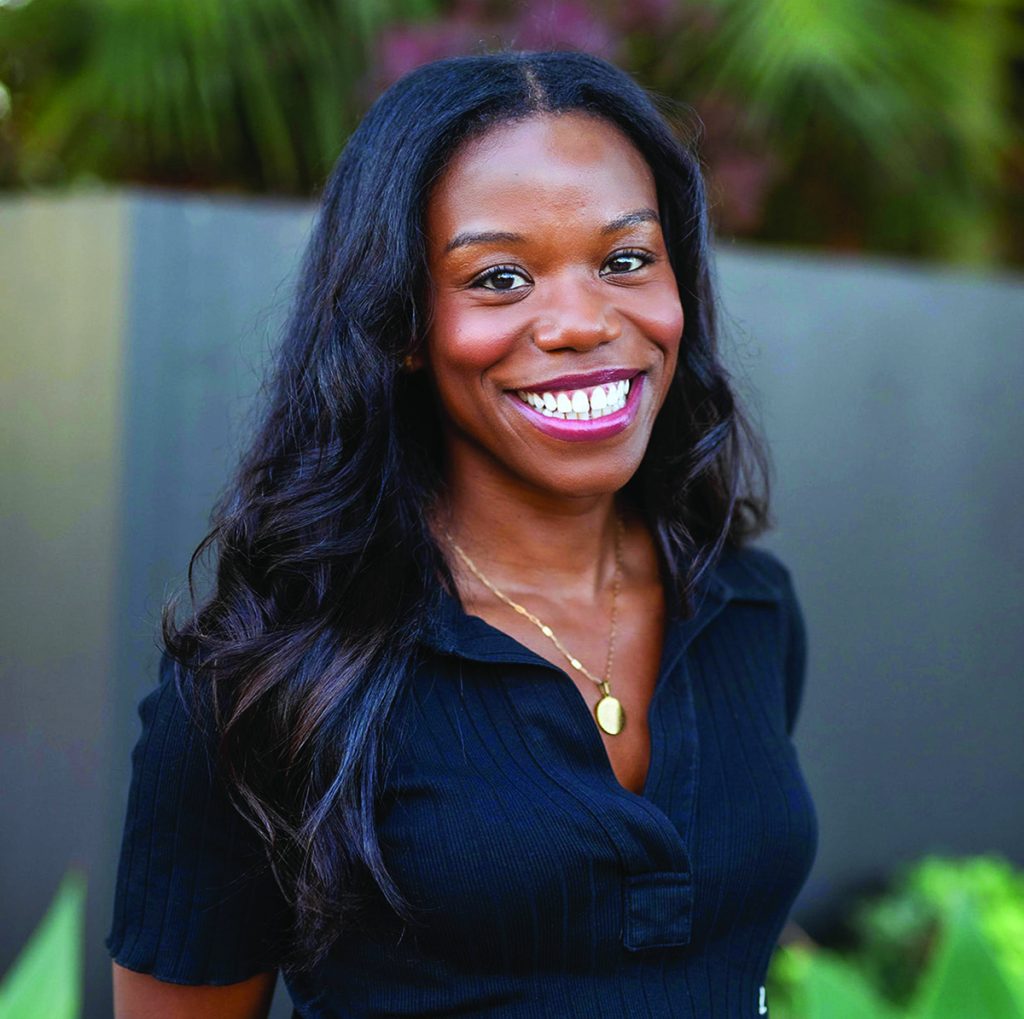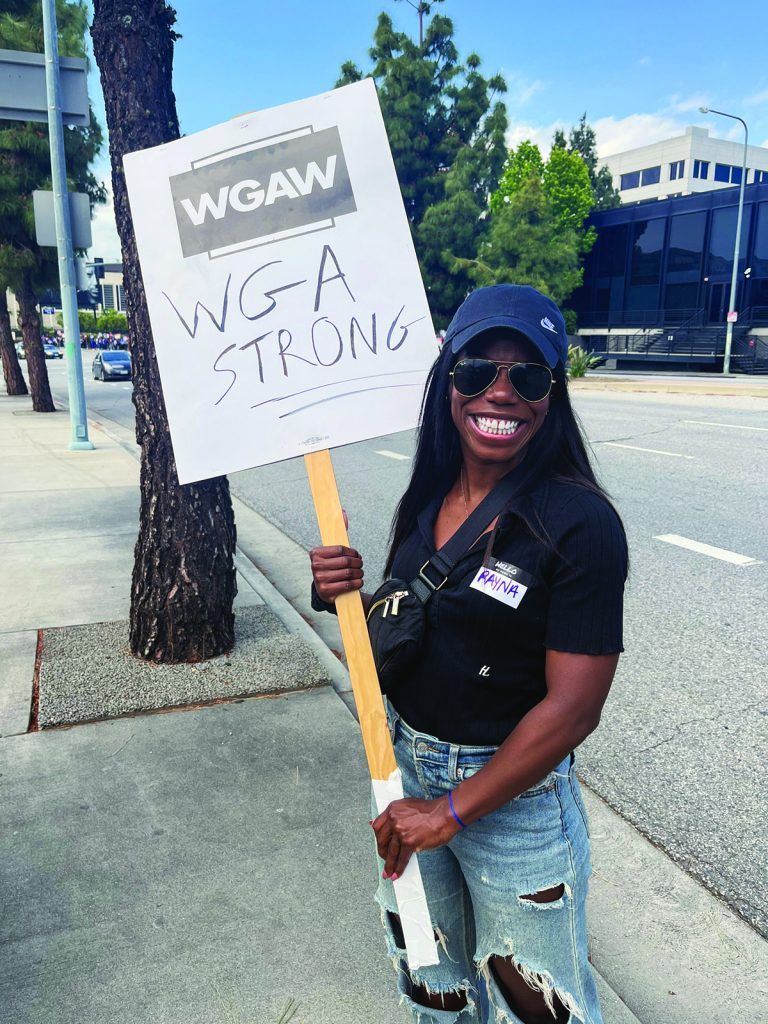Alumna Rayna McClendon found her love of screenwriting through classes in the department of communication at UNC.

Growing up in Atlanta, even in a family of classic movie watchers, Rayna McClendon thought her writerly ambitions would take form on paper, not on screen.
“I pretty quickly knew that I wanted to be a writer,” said McClendon (communication studies ’09), who today is a Hollywood writer and producer. “Writing poems and short stories was a way for me to express some of the things that I wasn’t able to vocalize as a teenager. Telling stories gave me the opportunity to grapple with all those emotional things that were going on in my life.”
McClendon chose Carolina for its creative writing program, and came in knowing that would be her minor, but she needed a major. She briefly considered journalism, but a media theory class helped her discover the department of communication. After that, she poured her storytelling into screenwriting.
“I always knew what I was meant to do, and I’m very grateful that I was given the opportunity specifically at Carolina to explore that,” said McClendon, who returned to campus last spring for a talk on “Navigating the Film Industry.” “I still had to learn a ton. That’s what I was able to receive at Carolina.”
McClendon participated in the UNC Hollywood Internship Program, a prestigious industry immersion experience that has been offered by the department each summer since 1992. She was assigned to Mosaic Media Group, a talent management company. There she was asked to help process the ever-growing pile of scripts submitted by hopeful writers. Reading a script and providing a synopsis and an opinion on its viability is called “doing coverage.”

“Doing coverage was probably the most valuable thing for me as a writer,” she said. “I could read scripts that were already in production, too.”
McClendon’s first official job in Hollywood was in Mosaic’s mailroom. “Best job ever, I loved it,” she said. In 2009, the job was responsible for incoming and outgoing media, which meant handling CDs or DVDs of people’s work, including burning highlight reels of performers the agency represented. Having learned to edit video in the UNC Multimedia Lab from Mark Robinson helped McClendon; she once edited a reel for a young Jessica Chastain. She continued reading scripts and began to be hired to write them.
She wrote for “Awkward,” a series that ran for five seasons on MTV, and then “Finding Carter,” “Briarpatch” and “Deadly Class.” She served as a writer and producer of “The Walking Dead: World Beyond” and is a co-executive producer for Marvel Studios.
In 2021, LucasFilm came calling with a super-secret project that ended up being “Obi-Wan Kenobi,” a Disney+ mini-series that was an expansion of the Star Wars cinematic universe. “I grew up on Star Wars,” she said.
McClendon was hired to help flesh out the female characters in “Obi-Wan Kenobi,” which dramatized the early relationship between the title character and Darth Vader. She wrote 15 pages full of recommendations. She found herself especially drawn to Reva, a new character.
“Reva had never been seen before, and she was going to be played by a Black woman,” McClendon said. “She was also going to be a villain. I was excited about the trailblazing element, but also, I felt super-protective of her.”
An early draft had Reva giving a speech revealing her motivations. “This is the biggest thing with storytelling — you always have to figure out, what does the character want?” McClendon said.
Another character asks Reva what she wants, and McClendon had her respond simply, “What I’m owed.” That line made it into the show.
“When I saw it on screen, I got goosepimples,” she said. “I knew that I had figured out that character, and that felt great.”
By Claire Cusick (M.A. ’21)
Read more Tar Heels Up Close in fall ’23 Carolina Arts & Sciences magazine.
